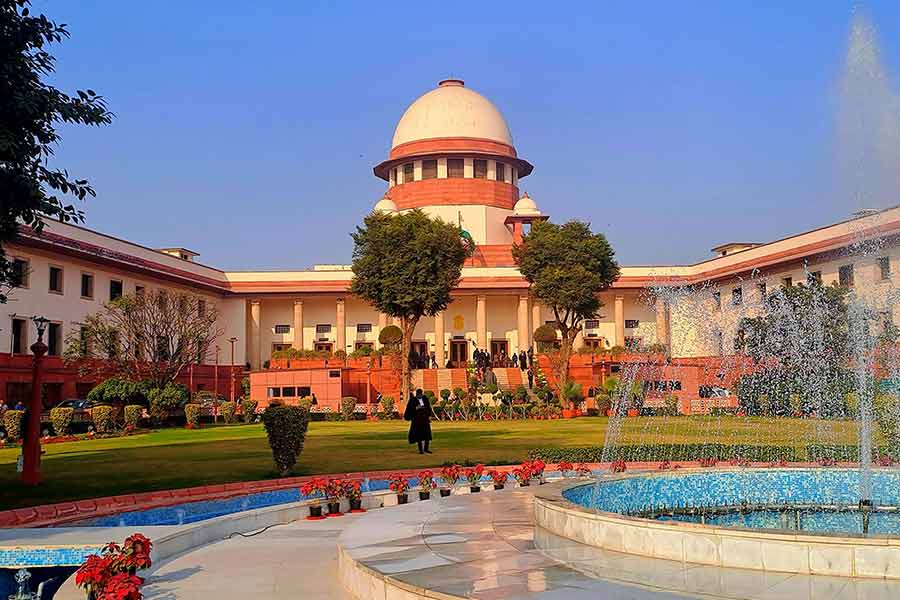Supreme Court Slams Police For Converting Civil Disputes Into Criminal Cases

In a landmark intervention, the Supreme Court of India has vehemently criticised state police forces for routinely transforming civil disputes into criminal prosecutions. This practice, the Court observed, reflects a “complete breakdown of the rule of law”, eroding citizens’ access to appropriate dispute-resolution mechanisms and burdening the criminal justice system with matters better suited for civil adjudication .
Background of the Case
The immediate catalyst for the Supreme Court’s rebuke was an appeal by brothers Debu Singh and Deepak Singh, against an Allahabad High Court order that had refused to quash an FIR lodged against them. The complaint stemmed from an alleged failure to return ₹25 lakh borrowed from a private individual an issue squarely within the ambit of contract law and civil remedy. Instead of initiating a suit for recovery of debt, the Uttar Pradesh Police registered charges of criminal breach of trust, criminal intimidation, and criminal conspiracy, triggering criminal proceedings against the petitioners.
Supreme Court’s Condemnation
Presiding over a three-judge bench, Chief Justice of India Sanjiv Khanna delivered scathing remarks:
“Every day in and day out, civil matters are being converted into criminal… This is an absolute breakdown of the rule of law.”
The bench comprising Justices Sanjay Kumar and K.V. Viswanathan underscored that “merely not giving (returning) money cannot be turned into an offence”, and cautioned state police against wilful misuse of the Criminal Procedure Code to bypass established civil procedures
Court’s Directives and Penalties
To curb this trend, the Supreme Court issued several directives:
-
Affidavit from DGP, Uttar Pradesh: The Court directed the Director General of Police to file an affidavit detailing measures taken to ensure complete and accurate entries in chargesheets, as per the mandate in Sharif Ahmed vs State of Uttar Pradesh
-
Stay on Criminal Proceedings: Recognising the civil nature of the dispute, the Court stayed further criminal proceedings against the petitioners until the appeal is decided.
-
Cost Imposition: In a rare move, the bench imposed a ₹50,000 fine on two errant police officers responsible for registering the FIR, warning that repeated infractions would attract heavier penalties
Broader Implications for Justice Delivery
This intervention shines a light on a systemic malaise:
-
Misuse of FIRs: By treating contractual or property disagreements as criminal offences, police forces circumvent the slower but more appropriate channels of civil litigation.
-
Erosion of Civil Remedies: Citizens deprived of civil recourse may face unwarranted criminal records, social stigma, and personal hardship before courts even assess the merits of criminal allegations.
-
Judicial Backlog: Unnecessary criminal cases exacerbate the already overburdened criminal courts, diverting resources from genuine offences.
Legal commentators note that the settled principle in Indian jurisprudence mandates that civil disputes “should not be converted into criminal ones until there is a clear element of crime” . The Supreme Court’s latest warning reaffirms this doctrine and underscores the need for strict adherence.
Recommendations for Police and Judiciary
To prevent future miscarriages of justice, stakeholders should consider the following measures:
-
Enhanced Training for Police Officers
-
Legal Workshops: Regular capacity-building on the distinctions between civil and criminal jurisdiction.
-
Standard Operating Procedures (SOPs): Clear guidelines on when FIR registration is warranted, with supervisory checks before filing.
-
-
Judicial Oversight
-
Periodic Audits: High Courts could institute review committees to audit FIRs in sensitive categories—such as loan disputes or property issues—to ensure compliance with legal norms.
-
FIR Quash Mechanism: Expedited hearing timelines for petitions under Section 482 of the Criminal Procedure Code to quash frivolous FIRs.
-
-
Civil Dispute Resolution Forums
-
Lok Adalat and Mediation Cells: Strengthen alternative dispute-resolution (ADR) mechanisms at the district level to funnel civil matters away from criminal courts.
-
Fast-Track Civil Courts: Specialized benches for high-value recovery suits to discourage parties from seeking “quick fixes” via criminal procedure.
-
These reforms resonate with the Supreme Court’s earlier directive in Sharif Ahmed vs State of Uttar Pradesh, which emphasized preventing “daily conversion” of civil wrongs into criminal charges
Conclusion
The Supreme Court’s stern admonition serves as a wake-up call for law enforcement agencies and judicial bodies alike. Converting everyday civil disputes into criminal trials not only violates foundational legal principles but also harms citizens’ rights and the integrity of the justice system. By implementing targeted training, bolstering judicial oversight, and strengthening civil ADR frameworks, stakeholders can restore the rule of law and ensure that criminal law remains a shield against genuine crimes not a sword wielded to settle private scores.
Only through collective will and sustained reform can India’s justice delivery align with constitutional values and safeguard its citizens from the excesses of misplaced penal action.
